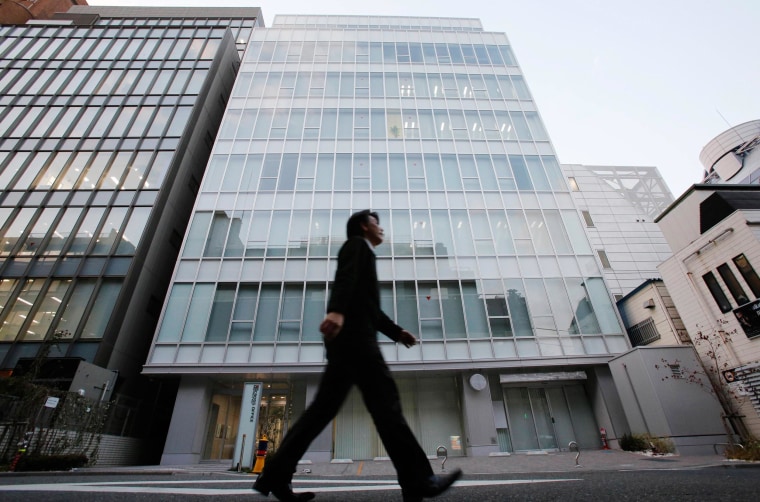The once massive bitcoin exchange Mt. Gox is effectively dead after losing nearly $500 million worth of customers' money and filing for bankruptcy in Japan on Friday.
Naysayers have called Mt. Gox's failure the beginning of the end of bitcoin, while proponents of the virtual currency argue that the problem is limited to Mt. Gox's lax security controls. But both camps agree the crash-and-burn is an important moment in the evolution of bitcoin, and that the post-Gox bitcoin world will be altered.
"Mt. Gox was one of the first [exchanges] out of the gate, and grew quickly to be the largest," said Geoff Vaughan, a security consultant at Security Compass who has owned bitcoins since 2010. "There was a lot of attention on Gox. Now we need to get past it and move on to what's next."
It may not be so easy for all to move on from the fate that befell Mt. Gox — which, as what was once the largest bitcoin exchange by far, became something of a barometer for the overall bitcoin industry.
For the critics, Mt. Gox represents all of the concerns about a decentralized, largely anonymous and unregulated system like bitcoin. Mt. Gox was vulnerable to hackers who overloaded the system with bogus transactions — forcing the company to halt withdrawals starting Feb. 7 — and ultimately, the exchange lost the money of customers who may have no way to get it back.
Supporters in the wider bitcoin community quickly distanced themselves from the problem, pointing out that the flaw in question has been public since 2011. Six rival exchanges released a statement Monday, after Mt. Gox took its website offline, insisting the problem lies solely with Mt. Gox and not with bitcoin as a currency.
Mt. Gox CEO Mark Karpeles himself echoed that point in a news conference on Friday announcing the bankruptcy filing, in which he attributed Mt. Gox's fall on weakness in its own system and called bitcoin itself "healthy" and "growing."
"It’s not surprising that Mt. Gox failed; what is surprising is the extent of the lack of controls on the largest bitcoin exchange."
But Mark Williams, a former Federal Reserve Bank examiner who now teaches finance at Boston University's School of Management, disagrees. He realizes Mt. Gox failed to protect itself from a known flaw — but he thinks its decline is indicative of larger problems in the system.
"Mt. Gox is a microcosm of the problems that exist in the bitcoin infrastructure by its very nature," Williams said. "When you have decentralized transactions, anonymous coins and a low-control environment, then you expose investors to great risk."
The $500 million loss on Mt. Gox is a major puncture in the bubble of trust that is necessary to keep any financial system afloat, he added.
"It’s not surprising that Mt. Gox failed; what is surprising is the extent of the lack of controls on the largest bitcoin exchange," Williams said. "Customers relied on it, and it wasn’t focused on ensuring customers' security or safety. How can they trust anyone else to be?"
Other experts argue Mt. Gox created an opportunity for other exchanges to be that beacon of trust: They learned from the mistakes, they saw what can happen and now they can prepare.
"With great innovations like bitcoin, it’s almost never the first one that does it right," said John Michener, chief scientist at Casaba Security. "Their successors are the ones who succeed."
"With great innovations like bitcoin, it’s almost never the first one that does it right. Their successors are the ones who succeed."
Michener believes the bitcoin industry will be able to "rebuild" after the Gox affair by shoring up security and doubling down on its efforts to gain consumers' trust.
But Vaughan, the Security Compass consultant, warned that more hacks are likely to come in this "maturity phase" for bitcoin.
"Hackers go for the weakest targets, as we saw with Gox," said Vaughan, the Security Compass consultant. "The industry has learned that lesson now. We're figuring it out quickly, but it will still be a rocky road."
Challenges aside, bitcoin's rapid rise in popularity and price has attracted more than the underground community. One of the most traditional financial players, JPMorgan, has tried to patent a bitcoin-like system. Online marketplace SecondMarket said this week that it will launch a bitcoin trading platform.
Michener thinks banks will create "some form of electronic cash that is not truly anonymous but is more efficient than a credit card." But that would look quite different from bitcoin: "To get government backing, the system would have to be far less suited for criminal enterprises."
But it's hard to imagine bitcoin advocates championing a system created by the likes of JPMorgan. Many of them would likely rather watch the idea of the cryptocurrency die than see it be absorbed into the traditional financial system it is meant to circumvent.
